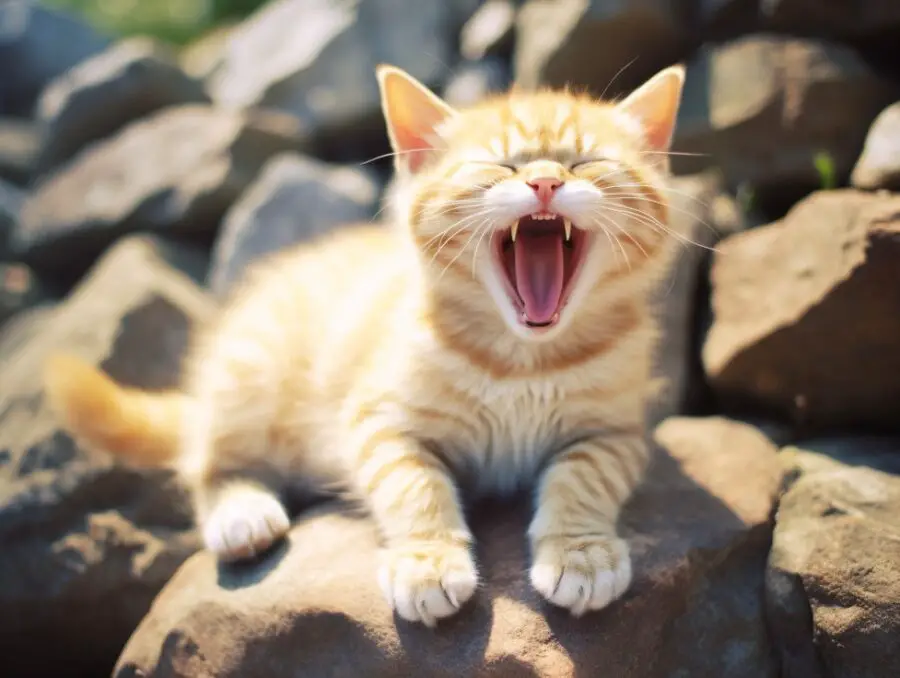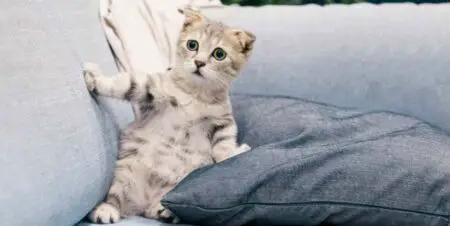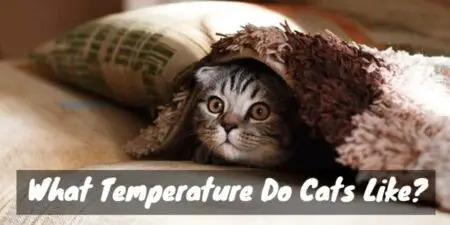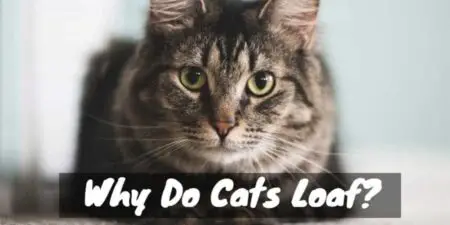Have you ever wondered why your cat yawns? If so, you’re not alone. Many cat owners have asked this question, and the reasons behind this common feline behavior are quite intriguing.
Let’s explore some of the possible explanations for a cat’s yawn.
What Is Yawning?
Firstly, it’s essential to understand that yawning is not unique to cats; humans and many other animals yawn as well. Yawning is an involuntary reflex that can serve a variety of purposes, such as increasing oxygen intake, regulating body temperature, and even functioning as a social cue.
#1 Reason: Oxygen
In cats, yawning might be a way to ensure they receive enough oxygen. When a cat yawns, it takes in a large amount of air, which helps deliver much-needed oxygen to the brain. This oxygen boost aids in promoting alertness and maintaining an appropriate energy level. If your cat has been resting or sleeping, a yawn might be its body’s way of saying it’s time to wake up and be more active.
#2 Reason: Body Temperature Regulation
Another possible reason behind a cat’s yawn is body temperature regulation. Cats are known for their ability to maintain a consistent body temperature, and yawning might play a role in this process. When a cat yawns, the flow of air over the moist surfaces in its mouth and throat can help cool down those areas. This cooling effect could aid in regulating a cat’s internal temperature, ensuring they stay comfortable and healthy.
#3 Reason: Communication
Yawning might also serve as a communication signal between cats. This theory suggests that a yawn could be a way for a cat to communicate its emotions, such as relaxation, boredom, or even stress. When observing a cat yawn, it might be helpful to consider the context in which the behavior is occurring. If the cat seems relaxed, a yawn might indicate contentment, while a yawn accompanied by other signs of stress or anxiety could signal that something is amiss.
#4 Reason: Yawn Contagion
Some studies have even suggested that yawning could be contagious among cats, just as it is among humans. While there’s limited research on this topic, it’s possible that a cat observing another cat yawn might be more likely to yawn itself. This phenomenon, known as “yawn contagion,” could function as a way for cats to synchronize their activities and promote social bonding.
It’s also worth considering that there might be additional factors not yet fully understood by science contributing to a cat’s yawn. As more research is conducted on feline behavior, we might discover even more reasons and explanations for this fascinating reflex action.
Conclusion
While yawning is typically a harmless and natural behavior for cats, it’s essential to monitor your cat’s overall health and well-being. If you notice excessive yawning or other unusual behaviors that may indicate a medical issue, it’s always a good idea to consult a veterinarian for professional advice and guidance.
So, the next time you catch your cat yawning, remember that there might be more to this simple action than meets the eye. From oxygen intake and temperature regulation to social cues and bonding, a cat’s yawn can provide valuable insight into her unique world.
Ultimate Compilation of Yawning Cats (Video)
"In ancient times cats were worshipped as gods; they have not forgotten this."
-- Terry Pratchett





